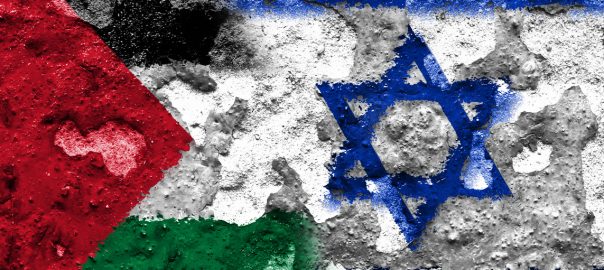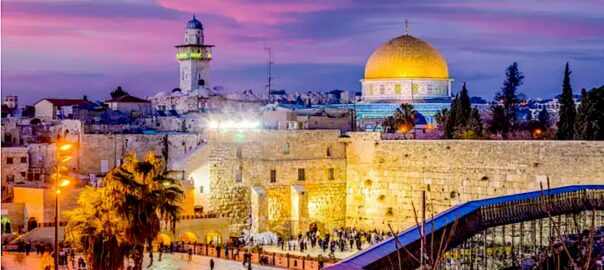
Over the last two decades, I have spoken and written extensively on the conflicts in the Middle East, especially between the State of Israel and her enemies. The horrors of October 7, 2023, and the subsequent explosions of antisemitism around the world and in the USA demand a response that is thoughtful and offers solutions for peace.
There have always been haters of Jews and of Israel…even some self-loathing anti-Zionist Jews. And there have been courageous Arab leaders willing to make peace. Egypt, Jordan, the UAE, Bahrain, and Morocco are enjoying the economic and social benefits of peace, with Saudi Arabia and others quietly moving toward peace with Israel. Formal peace agreements and frameworks for a new Palestinian State have been presented from 1978 (Camp David I) all the way to 2015. Each time the world hopes, and each time the Palestinian leaders and Islamic radicals change the terms and declare a new “Intifada” or “Jihad.”
What makes current antisemitism so heinous is the complete delegitimizing of the Israel as a nation. We are not talking disputes over borders, capitals, or military forces. This new generation of protestors is siding with radicals and declaring that the entire history of Israel since 1948 is nothing but a “White Settler Colony” or an imposition of the West committing “genocide” against Palestinians in Gaza and the West Bank.
In this essay and the one next week, I will offer historical facts and frameworks of hope that are contrary to the deluded crowds shooting, “From the River to the Sea Palestine will be free.” The same evil forces animating the Holocaust are at work again and must be opposed. Here are some important facts giving context for current events:
- The Jewish people have resided in Jerusalem and this region for over 3000 years.
- “Palestine” was an artificial creation of the Roman Empire after they defeated the Jews in a second rebellion in 135 AD. The Romans deliberately named the region (trying to erase Judea and Samaria) after the Philistines, the enemies of Israel who settled in Gaza and came from Crete.
- From the second century all the way to the 19th century, this land has had a succession of empires, while always having a Jewish population. The Crusades briefly brought Christian rulers (1099-1178), but after 1291 and until 1917, it was ruled by the Seljuk Turks and then the Ottoman Empire.
- In response to persecution in both Europe and other regions, Zionist movements (religious and secular, conservative and liberal) arose in the mid- and late-19th century, calling on Jewish people and their sympathizers to create a safe homeland in the Middle East. From the 1850s to the early 1900s, many Jewish groupie legally purchased land for farms and villages from local landowners and began to transform deserts and swamplands and create lively places like Haifa and Tel Aviv. There were some instances of violence, but they were few.
- In the wake of World War I (1914-1918), calls for accelerating a homeland increased, with British and international support between 1917 and 1923. Various Zionist groups were open to enclaves within the Transjordan Kingdom, or semi-autonomy under Great Britain, or a small nation with good relationships with Arab neighbors.
- But along with increasing desire for this well-deserved homeland, the 1920s saw the rise of Arab nationalism and jihadism, the birth of the Muslim Brotherhood, and radical leaders calling for an end to colonialism. No Arabist movement wanted any kind of increased Jewish presence and violence toward peaceful, legal Jewish communities increased.
Next week we will continue the narrative from World War II to the present. It is vital that honest people see that Jewish longings for peace and safety in their ancient homeland are legitimate biblically, historically, and affirmed by international law. As we will see, the idea that the modern state of Israel is a genocidal imposition is an outrageous projection of the jihadists’ desire to eliminate Israel.
One more topic must be touched on. There are anti-Israeli protestors claiming they only oppose Israeli policy but are not anti-Jewish. This is a lie for 99% of the agitators. Israelis themselves live in a contentious, pluralistic democracy. The only place where a rainbow flag flies safely in the whole region is in Israel! Israel has over two million Arab citizens; the current Palestinian leader insist that their future state will be, “Jew-free”. The PLO, Hamas, and Islamic Jihad all have charters calling for Israel’s destruction. Disagreeing with Israeli policy is fine, denying the legitimacy of a nation created in the shadow of the Holocaust is evil.


